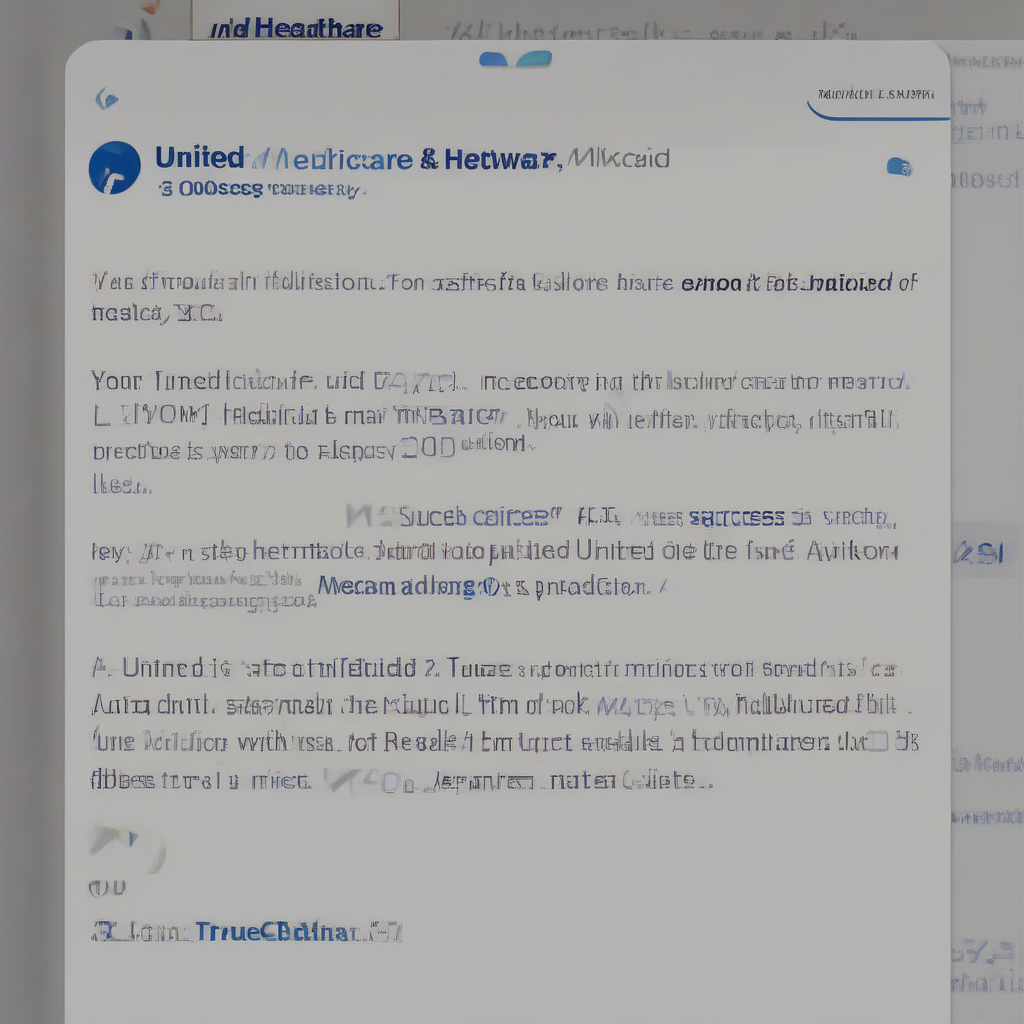Navigating UnitedHealthcare Medicaid in North Carolina: A Comprehensive Guide
UnitedHealthcare is one of the largest Medicaid managed care organizations (MCOs) in North Carolina, serving a significant portion of the state’s Medicaid population. Understanding how UnitedHealthcare Medicaid operates in NC is crucial for both beneficiaries and healthcare providers. This guide provides a detailed overview of key aspects of the program.
Eligibility and Enrollment
Eligibility for Medicaid in North Carolina, and subsequently for UnitedHealthcare’s Medicaid plan, is determined by the North Carolina Department of Health and Human Services (NCDHHS). Factors influencing eligibility include income, assets, age, disability status, pregnancy, and family size. Individuals meeting the eligibility criteria can enroll through the state’s Medicaid application process. Once approved, individuals may be assigned to UnitedHealthcare based on geographic location and plan availability.
- Income Limits: Eligibility is income-based, with specific thresholds varying based on household size and other factors. Regular updates on income limits are available on the NCDHHS website.
- Application Process: The application process typically involves submitting documentation to verify income, residency, and other necessary information. Assistance is often available through local agencies and community organizations.
- Enrollment Periods: There may be specific enrollment periods throughout the year, or open enrollment periods for certain populations. It’s essential to check the NCDHHS website or contact them directly to ascertain the current enrollment guidelines.
- Appeals Process: If an application is denied, there’s an established appeals process to challenge the decision. Information about the appeals process is readily available on the NCDHHS website.
Healthcare Services Covered
UnitedHealthcare’s Medicaid plan in North Carolina covers a wide range of healthcare services, generally aligning with the federal Medicaid benefits package. However, specific services and coverage levels can vary. It is essential to refer to the member handbook or contact UnitedHealthcare directly to confirm coverage details for specific procedures or medications.
- Primary Care: Access to primary care physicians is a cornerstone of the plan.
- Specialty Care: Referrals to specialists are typically required, and the process for obtaining referrals should be outlined in the member handbook.
- Hospital Care: Hospitalization is covered, but pre-authorization may be needed for certain procedures.
- Prescription Drugs: A formulary, or a list of covered medications, is in place. There may be prior authorization requirements for certain drugs.
- Mental Health and Substance Abuse Services: These crucial services are typically included in the coverage.
- Dental and Vision Care: The extent of dental and vision coverage can vary, and specific details should be checked with UnitedHealthcare.
- Transportation: Assistance with transportation to medical appointments may be available; check the member handbook for details.
Finding Doctors and Healthcare Providers
UnitedHealthcare maintains a provider network of physicians, specialists, hospitals, and other healthcare professionals within North Carolina. Beneficiaries can search for in-network providers using the online provider directory available on the UnitedHealthcare website or through their member services.
- Provider Directory: Utilizing the online provider directory is recommended to ensure access to in-network care, which typically results in lower out-of-pocket costs.
- Choosing a Primary Care Physician (PCP): Selecting a PCP is often a first step in accessing care. The PCP serves as the main point of contact for coordinating care.
- Referrals: Referrals from the PCP may be necessary to see specialists.
- Out-of-Network Care: While in-network care is encouraged, out-of-network care might be covered in certain emergency situations or with prior authorization. However, out-of-pocket costs will likely be significantly higher.
Member Responsibilities and Cost Sharing
Medicaid beneficiaries have certain responsibilities, including maintaining accurate contact information with UnitedHealthcare and adhering to appointment schedules. While Medicaid significantly reduces healthcare costs, there may still be some cost-sharing requirements.
- Copays: Copays may apply to doctor visits and other services.
- Deductibles: There might be a deductible that needs to be met before coverage kicks in for certain services.
- Coinsurance: Coinsurance represents a percentage of the cost that beneficiaries may be responsible for.
- Premium Payments: While Medicaid is generally free, there might be rare circumstances where a small premium is required.
- Keeping Information Updated: It’s crucial to keep UnitedHealthcare informed of any changes in address, phone number, or other pertinent information.
Grievance and Appeals Process
If a beneficiary has a complaint or disagreement with UnitedHealthcare regarding care, coverage, or other aspects of the plan, there’s a formal grievance and appeals process in place. This process provides a structured method to address concerns and resolve disputes.
- Grievances: Grievances involve expressing dissatisfaction with services received or administrative issues.
- Appeals: Appeals pertain to decisions related to coverage denials or eligibility.
- Timeframes: Specific timeframes exist for filing grievances and appeals. It’s essential to follow those deadlines.
- Documentation: Maintaining thorough documentation of communications and interactions is advisable.
- Assistance: Assistance with navigating the grievance and appeals process may be available through advocacy groups or community organizations.
Understanding the Member Handbook
The UnitedHealthcare member handbook is a comprehensive document that provides detailed information about the plan’s coverage, benefits, provider network, and other crucial details. Reviewing the handbook thoroughly is strongly recommended to fully understand the specifics of the plan.
- Coverage Details: The handbook provides a comprehensive list of covered services and benefits.
- Provider Information: Information on accessing the provider directory and finding in-network providers.
- Cost-Sharing Information: Detailed information on copays, deductibles, and coinsurance.
- Grievance and Appeals Process: A detailed explanation of the grievance and appeals process.
- Contact Information: Contact information for customer service and other support services.
Contacting UnitedHealthcare
UnitedHealthcare offers various ways to contact their customer service department, including phone, mail, and online resources. Their website typically provides contact information and frequently asked questions (FAQs) to assist beneficiaries.
- Phone Number: The member handbook will provide the appropriate customer service phone number.
- Website: The UnitedHealthcare website offers online resources and tools.
- Mail: The mailing address for correspondence will be listed in the member handbook.
Staying Informed
Staying informed about changes to the Medicaid program and UnitedHealthcare’s plan is crucial. Regular checks of the UnitedHealthcare website, the NCDHHS website, and communication from UnitedHealthcare are recommended.
- NCDHHS Website: The official website for the North Carolina Department of Health and Human Services provides updates on eligibility and program changes.
- UnitedHealthcare Website: The UnitedHealthcare website provides news, updates, and announcements related to the plan.
- Member Communications: Pay attention to any letters or emails from UnitedHealthcare regarding plan updates or important information.

